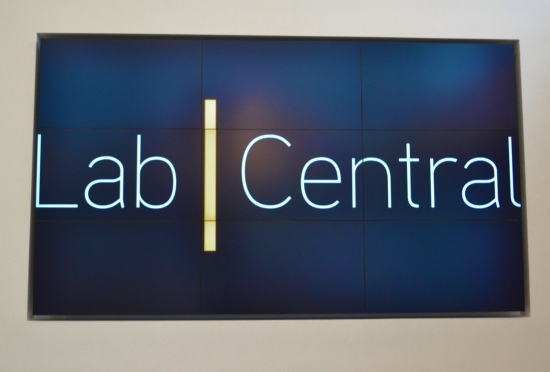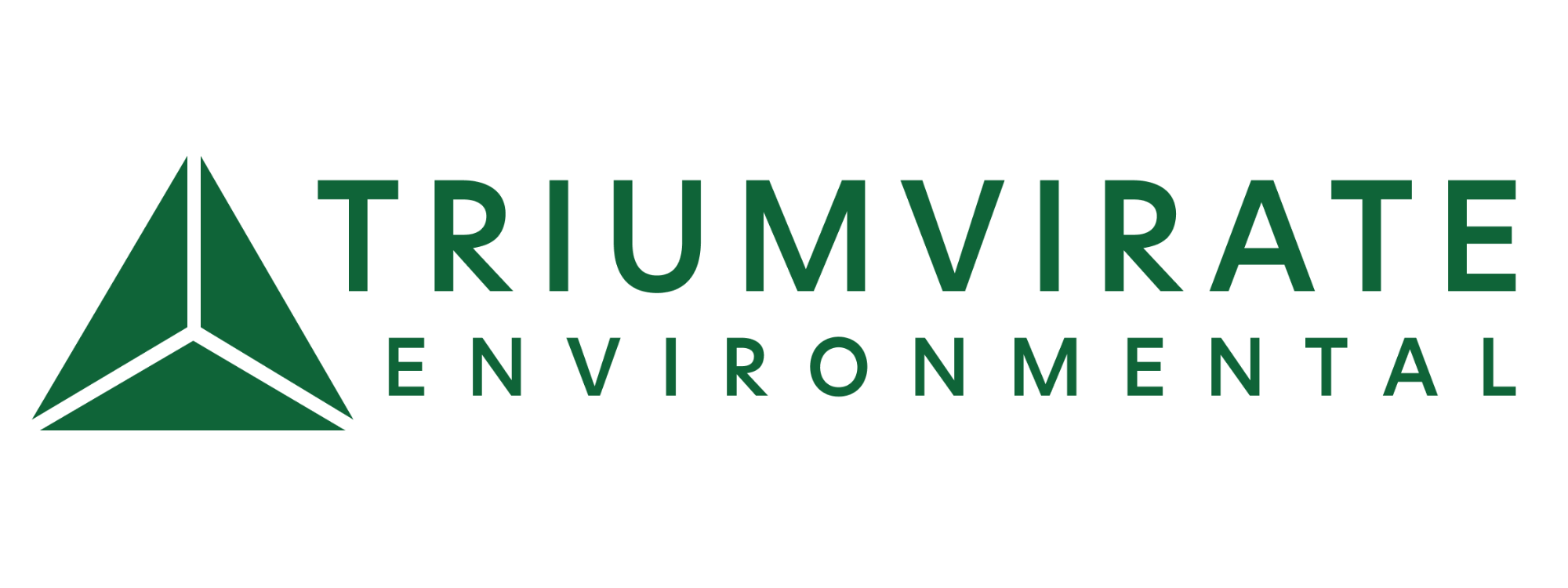LabCentral EH&S Update: After 2 Months, Labs Are Abuzz
At 700 Main Street in Cambridge, MA, within a brick building in the heart of Kendall Square, there is a strong feeling of potential. Even walking by the exterior, you get the distinct sense that things are happening inside. Through the green-paned windows of the building, you catch a glimpse of researchers at work within a lab space, cloaked with white coats and bent over, looking at something through their safety glasses.
Once you enter the facility itself, you look up to see a nine- screen monitor emblazoned with a logo that encompasses this aura – “LabCentral” – a shared lab space for startup life science companies on the brink of groundbreaking discovery.

As you turn through the brightly colored halls, you see evidence that some startups have already moved in since the facility officially opened its doors back in November. Labs are filled with labeled bottles and rotating pipette stands. Microtitration plates are filled with test tubes, and 2000 mL graduated cylinders are covered with tinfoil, sitting on countertops. Researchers walk with ease down the halls, smiling a hello as they pass. This, after all, is their new home. Eight companies have moved in thus far; more are to come.

And LabCentral is ready for new residents. Industrial refrigerators, -80 degree freezers, biosafety cabinets, fume hoods, flame cabinets, and a tissue culture room all quietly anticipate procedures to come. Pipette tips and glass burets sit in their packaging, waiting to be unwrapped, itching to embrace innovative research yet to come.
And innovation will ensue. Even in its early stages of life, LabCentral is at the cutting edge of technology. iPads are posted to the walls outside of the shared-space BioLevel 2 labs, ready to be scheduled for occupancy by researchers. Day lockers activate with the swipe of an employee access card. Crisp-looking vending machines serve up not junk food or sodas but chemicals to partake in benchtop science. All of these things have the potential to alter humanity for the better. After all, each thing in some way will contribute to collaborative research aimed at finding solutions to age-old health issues.

Resident Companies - A Culture of Innovation
Triumvirate is proud to support the companies that will house their research at LabCentral. Here’s background information on a few:
Vaxcess endeavors to bring vaccines to developing countries and decrease the cost of distribution. The company produces a silk packaging that stabilizes vaccines, removing the need for refrigeration in storage and shipment. In December, Vaxess was awarded $1M by Massachusetts Life Sciences Center (MLSC) accelerator loans.
BayesianDx is working to develop a hand-held probe to be used in the operating room. It uses molecular fingerprints that allow surgeons to sample tissue and get an immediate read of cancerous vs. healthy. Surgeons will no longer have to prepare microscopic slides from tissue sections, which is a labor-intensive and timely process.
Conkwest, Inc. is opening a research laboratory in Cambridge to further develop its cell-based treatments for cancer and viral infections. The California-based company has finished Phase I research and is now moving into Phase II. Conkwest is working to commercialize an off-the-shelf product based on the cancer-killing cell line NK-92.
Auxocell develops stem cell therapeutics derived from umbilical cords as an alternative to embryotic cell research. The company has developed a method to improve cord blood transplantation – one that could be used in the future for regenerative medicine platforms or gene therapy. With patent rights for the production of mesenchymal stem cell therapeutics, Auxocell has partnered with blood banks around the world to commercialize its technology. The COO and Chief Scientific Officer will be residing at LabCentral, in addition to the President of the International Cord Blood Society (ICBS).
Calorics Pharmaceuticals is leveraging novel insight into the biology of dietary restriction and nutrient sensing to discover and develop novel drugs to improve the human healthspan.
Constellation has an imaging system for melanoma that allows patients to do a full body scan every month. This system senses changes to moles over time, which is critical to the early detection of skin cancer. Today, the survival rate for those with melanoma is 49%. Constellation aims to drastically change this statistic.
Our Involvement
Throughout LabCentral’s construction, which began last Spring, our Environmental Consulting Advisors (ECAs) sat in on weekly construction update meetings with LabCentral’s CEO and VP of Operations, general contractors, and subcontractors. During these meetings, our ECAs provided compliance expertise on health and safety regulations and answered any questions that arose.
Before research began in November, we acquired a City of Cambridge flammable storage permit and a Massachusetts Water Resources Authority (MWRA) permit, created an emergency response plan, and received approval from the Cambridge Local Emergency Planning Committee (LEPC). Our environmental compliance advisors are now working to acquire a biosafety rDNA permit. To do so, they must categorize the levels of safety precautions needed in the lab. A floor plan color-codes Level 1 versus Level 2 biosafety levels.

We have also been working behind the scenes to develop a safety manual and establish waste accumulation areas for Lab Central. The facility's safety manual includes standards of procedure for accident reporting, a chemical hygiene plan, an emergency action plan, and an exposure control plan for all companies. We've set up Satellite Accumulation Areas for each laboratory so that, as researchers dispose of waste, they do so in a manner that keeps the facility in compliance with environmental regulations.
Now that research is in full swing, we will be performing routine eyewash and safety inspections, managing the facility’s wastewater treatment system, and performing hazardous waste disposal.

Triumvirate works with employees to achieve proactive compliance. We deliver regular on-site trainings to review environmental health and safety regulations and procedures in the lab – a mandatory requirement for all new LabCentral residents. The feedback from participants has been excellent. Those new to environmental regulations appreciate the in-depth coverage of topics such as emergency action plans, chemical hygiene plans, biosafety/bloodborne pathogens, and general awareness; for veteran laboratory scientists, it's a helpful refresher.
We are very excited to be such an intricate part of the chemical exploration going on within LabCentral. While other sponsors provide equipment and financial backing, we are able to maintain a strong relationship in the operational component of the lab. The researchers have the skillset to conduct the research and now the lab space and resources to execute, and Triumvirate has the personnel to ensure constant compliance with health and safety regulations. Cheers to the life-science discovery that is to come!







.png)